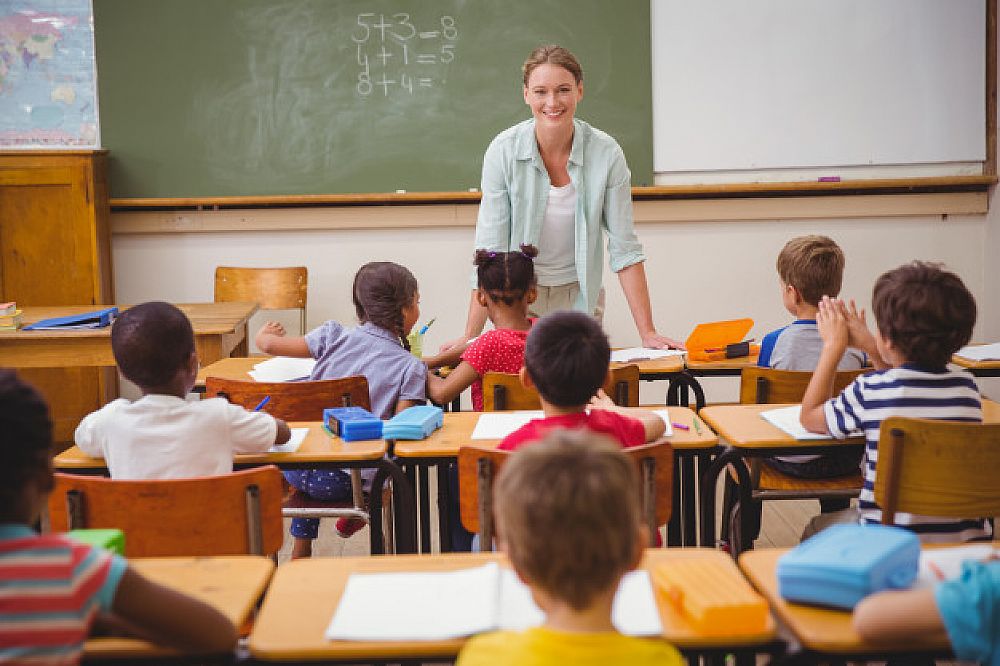Get Top Results with Primary Science Tuition Singapore from Experienced Tutors
Get Top Results with Primary Science Tuition Singapore from Experienced Tutors
Blog Article
Discovering the Different Teaching Methods in Main Science Education Today
The landscape of key science education and learning is developing, with various teaching approaches acquiring prominence in modern classrooms. Inquiry-based understanding, hands-on experiments, and the assimilation of modern technology are redefining exactly how educators engage young minds. In addition, collaborative approaches and differentiated direction are being used to accommodate the diverse requirements of students, boosting both interaction and understanding. As we analyze these methodologies, questions occur regarding their effectiveness and the effects for future instructional techniques. What might these shifts in approach mean for the future generation of students?
Inquiry-Based Knowing
Inquiry-Based Discovering (IBL) is an instructional technique that urges students to discover scientific ideas via doubting, examination, and hands-on trial and error. This technique emphasizes the function of pupils as energetic individuals in their discovering, promoting critical thinking and problem-solving abilities. By involving with real-world questions, pupils end up being curious and motivated, which improves their understanding of clinical principles.
In IBL, instructors work as facilitators, guiding pupils as they navigate their queries instead of providing information directly. This student-centered strategy enables distinction, suiting numerous learning paces and styles. Trainees create skills in creating theories, designing experiments, and analyzing data, which are vital for clinical literacy.
Furthermore, IBL cultivates cooperation among students, motivating them to share searchings for and concepts. This cumulative inquiry promotes social skills and a sense of area within the classroom. Furthermore, the procedure of questions motivates durability, as students find out to embrace failure as a tipping rock toward understanding.
Hands-On Experiments
Hands-on experiments are an essential element of effective scientific research education and learning, matching the principles of inquiry-based knowing. These experiments enable students to engage directly with scientific principles, promoting a deeper understanding with experiential learning. By manipulating materials and observing results, young students can comprehend abstract theories in substantial methods.
Such tasks promote important thinking and analytical skills, as trainees assume end results, conduct experiments, and assess outcomes. This process urges them to ask questions, fine-tune their understanding, and create a clinical attitude. Hands-on experiments can be customized to varied discovering styles, making sure that all students have the possibility to involve meaningfully with the content.
In addition, hands-on experiments commonly encourage cooperation amongst peers, advertising synergy and communication abilities. Functioning in groups makes it possible for students to share ideas, go over searchings for, and pick up from each other, which improves their general educational experience.
Incorporating hands-on experiments right into the primary science educational program not just enriches the discovering setting but also cultivates a lifelong passion in science. By actively taking part in their education, students are more probable to create an interest for scientific inquiry that prolongs beyond the class.

Technology Assimilation
Incorporating modern technology into primary scientific research education has come to be progressively crucial in cultivating pupil interaction and improving discovering end results. Making use of digital tools, such as interactive simulations, digital labs, and educational software application, gives students with opportunities to explore scientific concepts in cutting-edge methods. These sources assist in a much deeper understanding of complex subjects by enabling students to envision and adjust variables that would be impractical in a traditional classroom setup.
Moreover, innovation integration encourages personalized finding out experiences. Pupils can advance at their own pace, revisiting tough concepts via multimedia resources, which cater to different knowing styles. This flexibility not just supports individual development yet additionally cultivates a sense of autonomy in learners.
Furthermore, modern technology functions as a bridge to real-world science, connecting students with present research and professional contributions. Accessibility to on the internet data sources and clinical journals widens students' viewpoints on scientific query and fosters essential assuming abilities.
Collaborative Knowing
Collaborative knowing plays a vital role in primary science education by promoting team effort and interaction skills among pupils. This approach encourages students to function with each other, share expertise, and involve in analytic, which boosts their understanding of scientific principles. By joining team tasks, pupils learn to visit articulate their concepts, pay attention to varied point of views, and discuss remedies, all of which are vital skills in both scholastic and real-world contexts.

Study indicates that collaborative understanding can cause boosted inspiration and engagement in science topics, as trainees discover satisfaction in common experiences (primary science tuition Singapore). In addition, this approach prepares trainees for future collaborative ventures, equipping them with the abilities essential for efficient team effort in higher education and professional environments. Ultimately, embracing collaborative understanding in primary scientific research education can considerably enrich the discovering experience and promote a deeper understanding of clinical inquiry
Distinguished Direction

Distinguished guideline can show up in various means, such as differing the content, procedures, or products of discovering. For instance, educators might utilize tiered jobs that supply differing degrees of intricacy, enabling students to operate at their corresponding preparedness levels. Additionally, adaptable organizing techniques can help with partnership amongst pupils with various abilities, fostering peer learning.
Analysis plays an important duty in this strategy, as it notifies guideline and helps teachers comprehend each pupil's one-of-a-kind requirements. Formative assessments, such as tests and observations, can lead teachers in readjusting their approaches to enhance discovering outcomes. primary science tuition Singapore. Inevitably, by implementing differentiated guideline in primary scientific research education and learning, educators can cultivate an extra reliable and equitable learning setting, empowering all trainees to reach their full capacity in comprehending scientific sensations
Conclusion
In recap, the varied teaching strategies in key scientific research education and learning, including inquiry-based understanding, hands-on experiments, modern technology combination, collaborative learning, and set apart instruction, collectively add to a much more effective discovering environment. These methods advertise vital thinking, analytical skills, and a deeper understanding of scientific ideas. By executing these approaches, teachers can develop interesting and supportive classrooms that attend to the different requirements of trainees, eventually fostering a long-lasting interest in science and boosting scholastic success.
Inquiry-Based Discovering (IBL) is a pedagogical strategy that urges trainees to explore clinical principles with wondering about, investigation, and hands-on trial and error.Collaborative understanding plays an essential function check these guys out in main scientific research education by cultivating synergy and communication abilities among pupils.Research suggests that collective understanding can lead to raised inspiration and interaction in science topics, as students find enjoyment in common experiences.In promoting a comprehensive learning atmosphere, differentiated instruction emerges as a crucial technique to accommodate the diverse needs and capabilities of students in primary science education and learning. Inevitably, by applying differentiated guideline in main scientific research education, educators can grow a more effective and fair knowing setting, equipping all trainees to reach their complete capacity in understanding scientific sensations.
Report this page